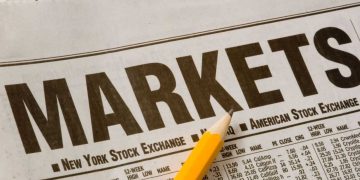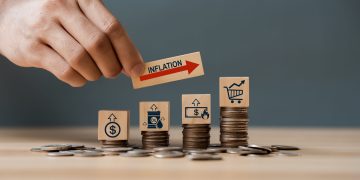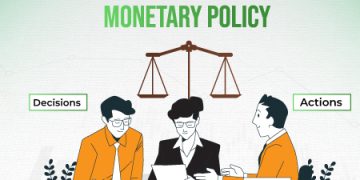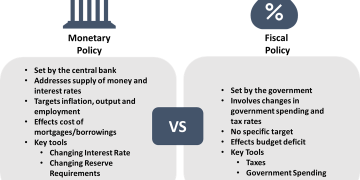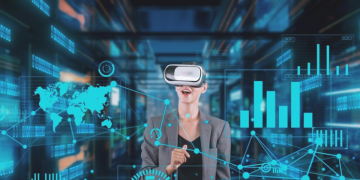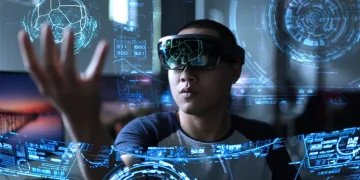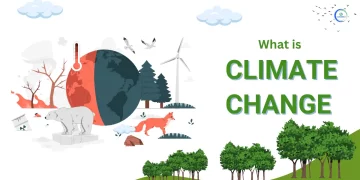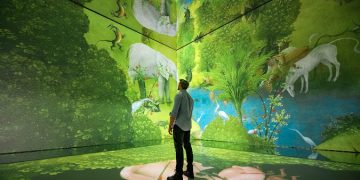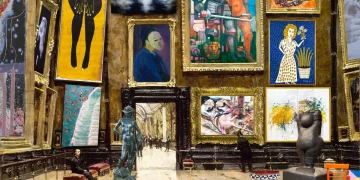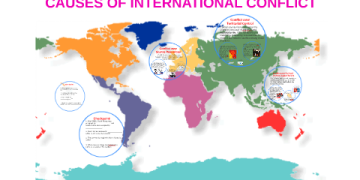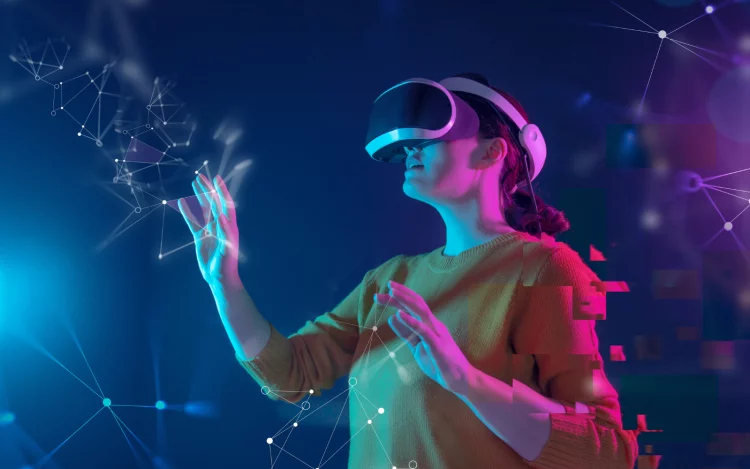Introduction: A New Economic Frontier
When the internet first emerged, few could predict that it would become a multi-trillion-dollar economy, birthing industries like e-commerce, social media, and digital advertising. Today, we stand at the threshold of another revolution: the metaverse economy. Unlike traditional digital platforms, the metaverse does not just facilitate online transactions—it creates entire virtual worlds where commerce, labor, and value exchange are embedded into the fabric of immersive environments.
This article explores how virtual worlds are transforming into real economies, analyzing the business opportunities, challenges, and long-term implications of metaverse commerce.
Section I: The Foundations of Metaverse Economies
Before examining specific business applications, it is essential to understand the fundamental components that make the metaverse an economic ecosystem.
1. Digital Scarcity and Ownership
- Blockchain and NFTs make digital assets ownable, tradable, and scarce.
- Unlike a JPEG file that can be copied endlessly, an NFT-backed asset has provenance and uniqueness, creating real economic value.
- Example: Decentraland parcels of land have sold for millions of dollars, despite existing only virtually.
2. Persistent and Interconnected Worlds
- In a game, progress often resets or remains locked to a single platform.
- In the metaverse, persistence ensures that assets and reputations endure across experiences.
- Interoperability will allow a user’s avatar clothing purchased in one world to function in another, supporting continuous economies.
3. Hybridization of Physical and Digital Economies
- Augmented reality (AR) bridges the physical and digital.
- A consumer might buy sneakers in the physical world, then receive their digital twin for use in a metaverse platform.
- This convergence creates new marketing and monetization models.
Section II: Business Opportunities in the Metaverse
The metaverse is not just a playground for gamers or tech enthusiasts; it is becoming a frontier for serious business innovation.
1. Virtual Real Estate and Architecture
- Companies like The Sandbox and Somnium Space sell land parcels where users and businesses can build experiences.
- Uses include:
- Virtual headquarters for companies.
- Shopping malls showcasing digital fashion.
- Event venues hosting concerts or trade fairs.
- Real estate speculation mirrors the physical world, with location and traffic patterns influencing value.
2. Retail and Immersive Commerce
- Traditional e-commerce sells products via websites or apps.
- Metaverse commerce offers immersive showrooms where customers can interact with products in 3D before purchase.
- Example: Gucci Garden in Roblox, where virtual bags sold for higher prices than their real-world equivalents.
3. Entertainment and Cultural Experiences
- Live concerts in metaverse platforms draw audiences in the millions.
- Sports organizations can sell tickets to virtual seats in digital stadiums.
- Museums and galleries can monetize exhibitions globally, unconstrained by geography.
4. Education and Corporate Training
- Universities and companies are experimenting with metaverse classrooms and onboarding sessions.
- Benefits:
- Reduced costs compared to physical training.
- More engaging than video calls.
- Allows simulation-based learning (e.g., virtual surgeries for medical students).
5. Advertising and Brand Building
- Billboards in virtual cities.
- Sponsored events within games.
- Branded avatar skins.
- The metaverse becomes the next frontier of consumer attention, rivaling social media.
Section III: Case Studies in Metaverse Business
To understand the transition from virtual worlds to real economies, we must look at pioneering examples.
Case 1: Roblox – Building an Ecosystem for Creators
- Roblox allows users to create games and experiences within its platform.
- In 2021, creators earned over $500 million from in-game sales.
- Some developers have turned Roblox game creation into full-time businesses.
Case 2: Epic Games and Fortnite – Beyond Gaming
- Fortnite began as a battle royale game but evolved into a social hub.
- Virtual concerts, movie trailers, and branded crossovers turned it into a cultural economy.
- Epic Games is investing billions to expand Fortnite into a metaverse platform.
Case 3: Decentraland – Real Estate as a Commodity
- A virtual plot of land in Decentraland’s “Fashion District” sold for $2.4 million.
- Global brands like Adidas and Sotheby’s have purchased land to host virtual stores and exhibitions.
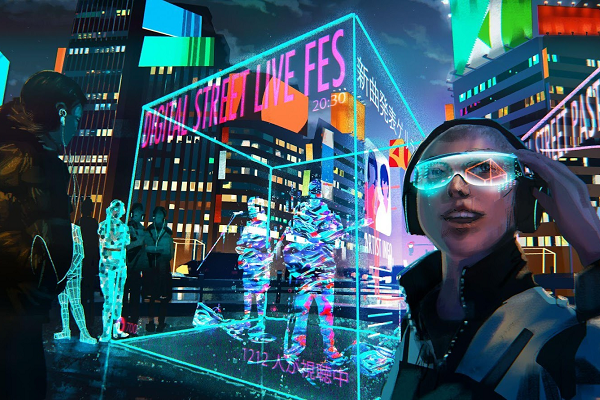
Section IV: Challenges and Contradictions
While opportunities abound, building real economies in virtual worlds is fraught with complexity.
1. Regulation and Governance
- Who governs the metaverse economy?
- Should land sales in a virtual world be taxed like physical property?
- Governments are still catching up, creating uncertainty for businesses.
2. Sustainability and Energy Use
- Blockchain systems often consume enormous energy.
- Without innovation, large-scale metaverse economies could have negative environmental consequences.
3. Inequality and Exclusivity
- Just as in the real world, wealth may concentrate in the hands of early adopters or those with capital.
- Virtual real estate speculation has already priced out average users.
4. Security and Fraud
- Hacks, scams, and identity theft threaten virtual assets.
- Since many assets are linked to cryptocurrency, losses can be irreversible.
Section V: Contrasting Perspectives
Optimists’ View
- The metaverse democratizes opportunity, enabling creators worldwide to monetize talent.
- It allows businesses to scale globally without physical infrastructure.
- It fosters cultural exchange in unprecedented ways.
Skeptics’ View
- Many metaverse projects resemble speculative bubbles.
- Adoption depends on expensive VR/AR hardware not yet mainstream.
- Without regulation, exploitation and monopolization are likely.
Section VI: Future Scenarios
To envision the future of metaverse economies, consider three possible scenarios:
1. Integration Scenario – Metaverse as Mainstream Business Infrastructure
- Virtual offices, trade fairs, and retail become standard business practice.
- Traditional companies operate parallel presences in physical and digital realms.
- The metaverse merges with the internet into a single hybrid economic ecosystem.
2. Fragmentation Scenario – Multiple Walled Gardens
- Competing platforms like Meta, Tencent, and Epic Games build closed ecosystems.
- Lack of interoperability prevents a unified economy.
- Businesses must choose which ecosystems to participate in, similar to competing app stores.
3. Collapse Scenario – Metaverse Hype Fizzles
- High costs, slow adoption, and lack of consumer interest lead to decline.
- Some platforms survive in niche sectors (gaming, education), but the vision of a full-fledged economy fails.
Section VII: Preparing for the Metaverse Economy
Businesses and entrepreneurs must adapt strategically.
Key recommendations:
- Experiment Early: Build pilot projects in platforms like Roblox, Decentraland, or Horizon Worlds.
- Invest in Digital Assets: Secure valuable virtual real estate, intellectual property, and avatar branding.
- Prioritize Interoperability: Develop products and experiences that can migrate across platforms.
- Focus on Community: Success depends on building engaged communities, not just selling products.
- Monitor Regulation: Stay ahead of evolving legal frameworks around digital ownership and taxation.
Conclusion: From Vision to Reality
The journey from virtual worlds to real economies mirrors the early days of the internet. What once seemed like entertainment or novelty is evolving into a serious business landscape. The metaverse is not just about games or escapism—it is about reshaping the very structure of commerce, labor, and value exchange.
Yet, the future remains uncertain. Will the metaverse democratize opportunity or replicate real-world inequalities? Will it become an open ecosystem for creativity or a monopolized digital empire?
What is certain is that businesses cannot afford to ignore it. As technology, culture, and commerce converge, the metaverse will become a defining arena of 21st-century economic life. Those who experiment, adapt, and innovate today will shape the economies of tomorrow.

